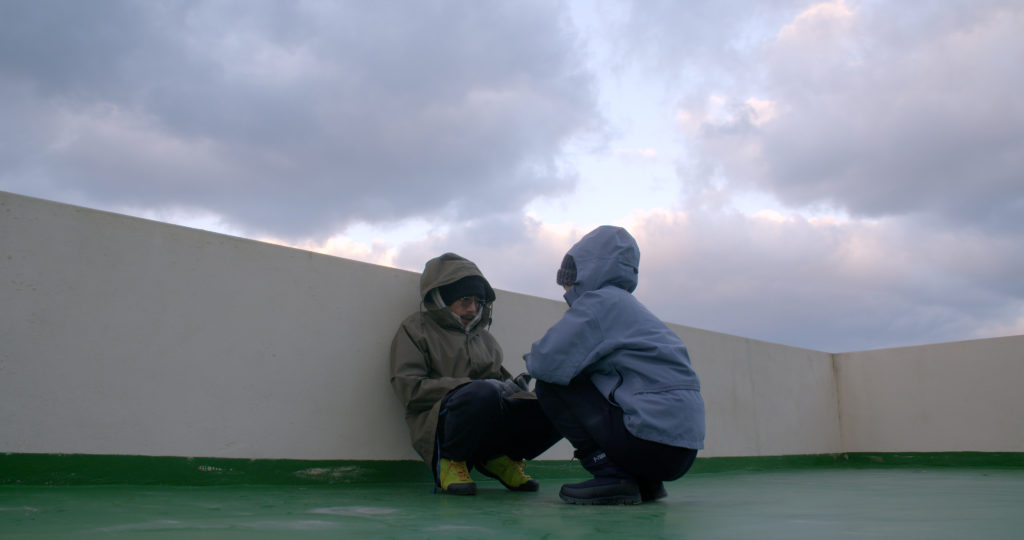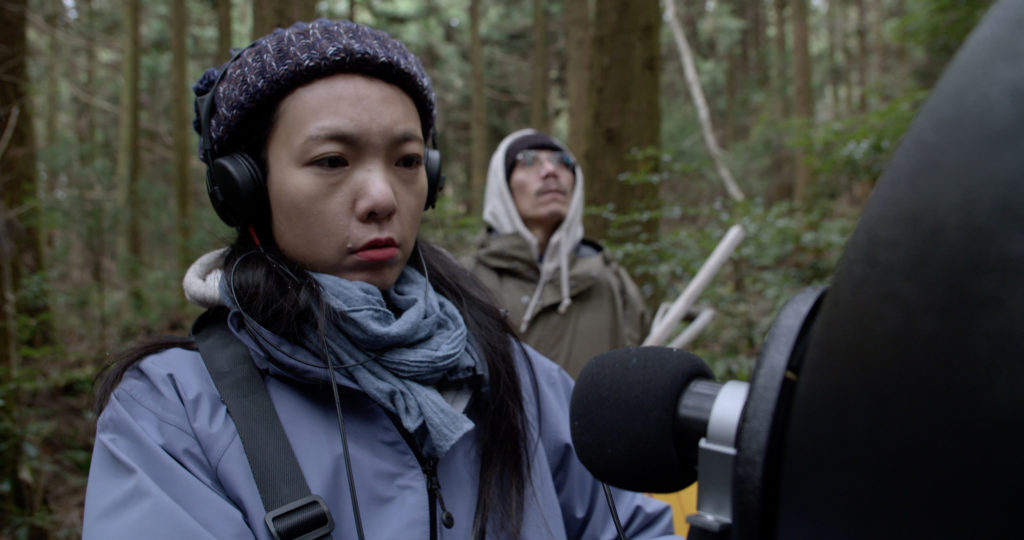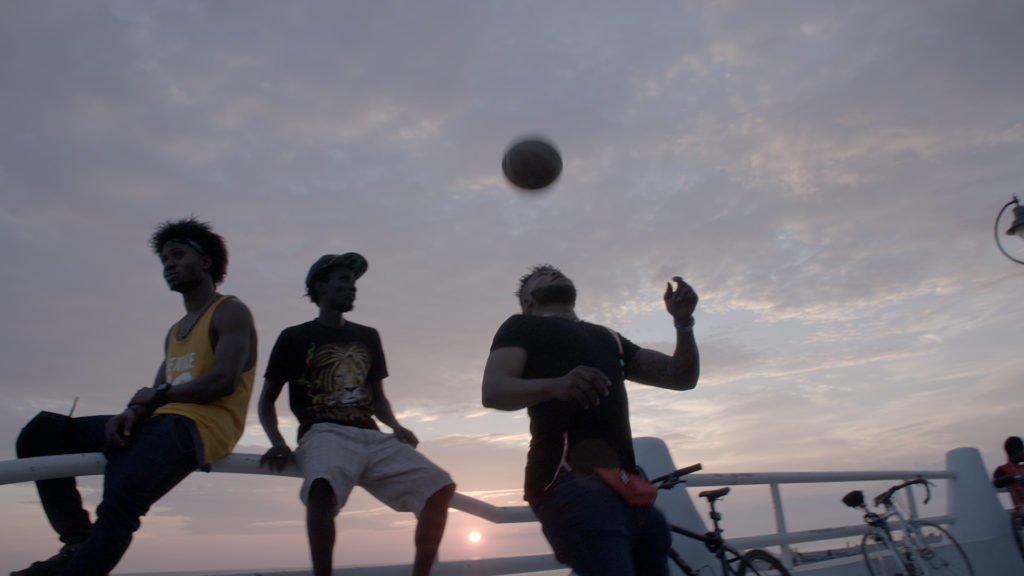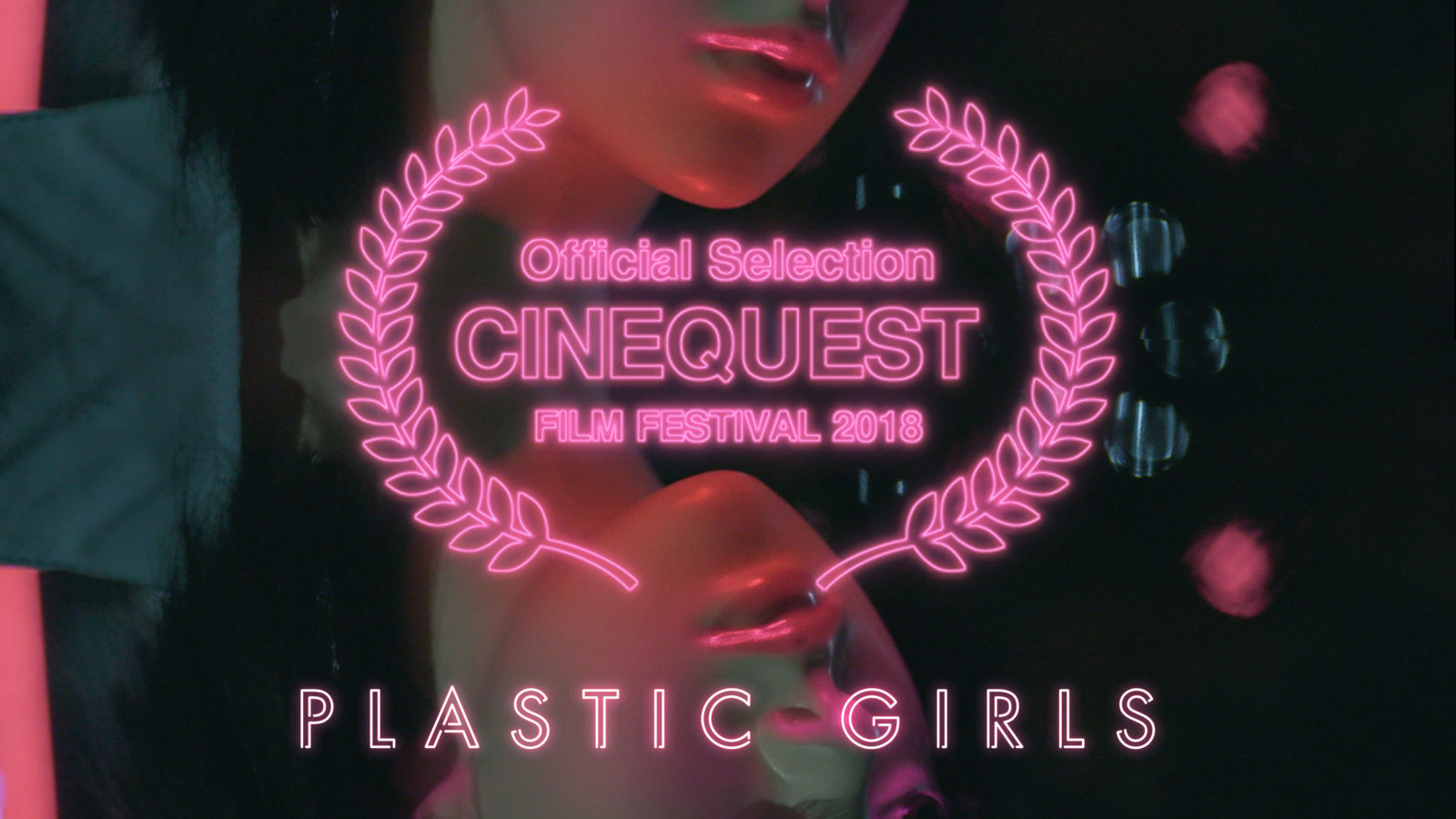DOCUMENTARY
Documentary on Telepathic Communication
Moving & Migration
IN FLUX is a short film which was initially made for a group exhibition for “Gyeonggi Museum of Modern Art” in Korea and the “Kaohsiung Museum of Fine Arts” in Taiwan. The exhibition, titled “Moving & Migration”, was held between February and October 2019, and included artists who reside in both countries.
The History of Migration in Modern Korea
Taking a closer look at Korea’s modern history, migration in its current form is a rather recent phenomenon. Korea had remained virtually shut to international migrants until economic development gathered steam in the late 1970s. In the 1990s the Korean government introduced non-skilled labor migration schemes.
Rise in International Marriages
Around the same time a rise in international marriages significantly increased the numbers of migrants. Apparently over 70 percent of all international marriage cases since the early 2000s are between Korean males and foreign females. This is due to the “bachelor surplus” in Korea. Strong values based on Confucianism were the leading factor to pursue tight family planning and selective birth. There was a strong preference for sons up until the 1980s. The result of this is a severe mismatch in the marriage market. There was a lack of native-born brides for a significant amount of Korean males. Especially those who resided in the countryside.
The Phenomenon of Cross-Cultural Marriage
The phenomenon of cross-cultural marriage was the starting point for making IN FLUX. The main characters of the film themselves are a Korean-Chinese intercultural couple. They create an elixir that transcends language barriers to empower, especially, those who came to Korea as marriage immigrants. There was a rigid anti-settlement policies in the past. But now the Korean government finally has installed a legal support system for marriage immigrants. In tandem with the local communities the government still follows a one-sided assimilation of immigrants into Korean society. Immigrants are expected to fill perceived social voids without altering the fabric of society. This kind of static understanding of the migration process leads to a paradoxical situation. While the government provides structural conditions for immigration, it denies the cultural shifts that have to happen to make place for new social realities.
A Different View on Multiculturalism
We made IN FLUX to explore a different view on multiculturalism, also but not only in Korea. Rather than reproducing the narrative of hegemonic concepts of multiculturalism, IN FLUX drifts off to a more poetic idea of multiculturalism. It turns out to be a catalyst for a new reality. It becomes an unpredictable process. Through that it carries the potential for unknown beauty and is not something to be feared and controlled. By doing that, IN FLUX describes multiculturalism as a constant stream of becoming. Instead of locking it down to a fixed, prescribed meaning.
Team Work
After having collaborated on commercial and artistic projects for more than 5 years, we are proud to present IN FLUX now as our first film, which we directed as a team. Thank you very much, Nils & Udo
My Hometown Means the Sea
MY HOMETOWN MEANS THE SEA: A NORTH KOREAN DEFECTOR’S POEM is a short film that has been commissioned by the Washington Post. The film was part of Anna Fifield’s in-depth story on North Korean defectors, who made a living in Seoul.
The film portraits young poet Eun-jeong Oh (26), who left Kyongsong (on the east coast just south of Chongjin in North Korea) in 2009. In an interview with Anna Fifield she describes her life back home and how she ended up writing poetry:
“My dad was a sailor, and he had alcohol problems, but still, I had a happy childhood. I used to swim in the sea every morning and every afternoon after school. My forehead was always white because of the salt from the sea. But then my mom left and my father was killed in a traffic accident, and my sister, who is 11 years younger than me, went to live with our grandma. I was living by myself in our family house. Then in 2009, I escaped, too. In North Korea, I had read only one novel, which I’d borrowed from a neighbor. It was all torn and there were pages missing, but it was all I had. In South Korea, I was always reading. At college, I discovered a wonderful Korean literature professor whose way of teaching was very emotional, and I ended up taking three classes with him. The whole time, I was writing down little notes in my phone. I didn’t even know that the notes I was writing were poetry. I was just scribbling spontaneously.”
“One fall day, I saw a maple tree with red burning foliage on campus. It was so beautiful, but I knew it would all be gone by the following week. Thinking about that made me think of the last time I saw my sister. At the time, I didn’t even know what a metaphor was, I just wrote. The biggest motivation for me behind writing poetry was missing my sister so much. I was so full of hurt, I was overflowing with hurt, and I had to let it out onto the page. It was a whole new world to me. I felt like each cell in my body was coming to life. My first book came out in 2015. It’s called “Calling Home.” I was invited onto a TV channel, and I gave poetry readings. That’s how I was selected as a rising poet, and I was asked to contribute to another collection. A lot of my works are related to North Korea. I have such fond memories of there. Even though there is oppression, there were also moments of happiness, and I don’t have to deny those times. People are hungry and life is hard, but the essence of humanity is the same.”
I would like to thank MIN JOO KIM, JOYCE LEE, JESSE MESNER-HAGE who together produced the film, UDO LEE, who recorded sound and ERIN PARICK O’CONNOR, who edited and color graded the film. The music is by APM MUSIC.
ART ATTACK. A short documentary
SHORT SYNOPSIS
The Demilitarised Zone, in short DMZ, is a buffer zone between North and South Korea where only soldiers patrol. Within spitting distance of this military hotspot each year a range of international artists take part in a residency programme in a small South Korean village called Yangjiri. Each year their artistic practices culminates in an exhibition in and around the village. The outcome of this festival-like event and the relations between the artists and the villagers, range somewhere between documentary and fiction. Not only is communication difficult, but there is also a clash of cultures and values. A small village at the border to North Korea is turned upside down for the sake of what could be understood as pretentious art. What we see is a certain surreality, perhaps even in keeping with the character of the DMZ, which has divided North and South Korea for 65 years.
DIRECTOR’S STATEMENT
ART ATTACK is a short documentary shot in a small Korean village called Yangji-ri located just south of the border with North Korea. Every year the Seoul based gallery Art Sonje hosts a contemporary art festival in this very rural area and the public are carried on buses into and out of Yangji-ri. Since the gallery also runs an artist residency programme in Yangji-ri, the participating artists are invited to stay there for their art practices prior to the festival.
During the production of ART ATTACK I spent a couple of days in Yangji-ri prior to and during the festival. The Goethe Institut Korea, which has been one of the sponsors of the festival kindly invited me to deliver my vision of this unique event. For me the most interesting thing about this event is not so much connected to the work of the artists, it is rather the ‘behind the scenes’ related events, where we really see how two different culture and a very different understanding of what art is. Since the villagers voices are not really heard, the audience is left with a sense of art colonialism. It is my belief that in this sense the culture industry, like any other, is marketing its products, the artist and curators, on the international stage.
I hope that ART ATTACK allows us to reflect on an international art circuit, which often comes across as pretentious. Furthermore the film illustrates how interpersonal relationships are often exploited for one’s personal success. I am well aware that my insight into the relationships between the artists and villagers has been very limited, since I only got to spent 6 days in Yangjiri to shoot the film. But while I was filming the documentary, I did not have a lot of preconception nor a fixed approach or storyline in my head. I tried to immerse myself into the situation without being to judgmental nor taking sides with either the artists or the villagers. The story, as it is, was mainly contextualised in the edit. Here it made sense to juxtapose the artists with the villagers in order to contrast their views and opinions. The resulting film is a critical position on a globalised art world and it’s confrontation with a tiny village in Korea close to the Demilitarised Zone. A small corner of the world where people are probably not too concerned about art.
Despite the sometimes heavy subject matter that touch on the Demilitarised Zone, art colonialism and difficult interpersonal relationships, I understand ART ATTACK merely as a comedic film. I had a lot of fun reviewing the footage during the editing process and some parts made me laugh out loud. To highlight humorous elements in the film, I basically had to divide and then lump together what can be summed up as the art world on the one hand, and the world of the villagers on the other. I hope that based on this editorial generalisation none of the artists or villages in this film feel any of their personal rights are being violated and that they also look at this as a comedic film.
Thank you very much for your interest in this film!
Bikini Words at Arlington Film Festival
Bikini Words at The Arlington International Film Festival
We are incredibly honored to announce that BIKINI WORDS by Nils Clauss will screen in the International Shorts Program of the 8th annual Arlington International Film Festival. The festival takes place from November 1st to November 4th 2018 in Cambridge, Massachusetts.
About BIKINI WORDS
BIKINI WORDS is the first film of a Korea related trilogy, which is followed by LAST LETTERS and PLASTIC GIRLS. What unites the 3 films is a strong focus on issues related to space and architecture, but each film itself stands out with an individual subject matter. BIKNI WORDS talks about new vocabulary that evolved during the rapid industrialisation of South Korea throughout the 1970s and 1980s amongst the factory workers to put names to the radically new aspects of their urbanised lives.
To date BIKINI WORDS has screened at several international film festival and won Best Short Documentary at the Lift-Off Season Awards 2016.
For more information about BIKINI WORDS please read a very thorough interview on film blog DIRECTORS NOTES, which dives into some of the ideas behind and the making of this film.
Screening Time
BIKINI WORDS will screen in the International Shorts Program along with the CLASH OF MORALITY by Vinay Pujara, CUBEMAN by Linda Dombrovsky, LIFE AFTER GUANTANAMO by Esteban Cuevas and DANKE by Antonio Sequeria:
* Fri, Nov 2nd, 9:28 PM at Capital Theatre – 204 Massachusetts Ave, Arlington, MA 02474, USA
For more information about screening times, venues and the festival in general, please visit the ARLINGTON INTERNATIONAL FILM FESTIVAL website.
MINERVA | Global Immersion: Seoul
THE GLOBAL IMMERSION SERIES
Founded in 2014, Minerva Schools is designed around a new vision of higher education that combines a reinvented curriculum, rigorous academic standards, innovative technology, and an immersive global experience. Students study in seven different cities over the course of four years, where they engage with local civic partners to apply classroom knowledge to practical, real-world problems. The above film is part of a series directed by LA based Andrew Hida in collaboration with Minerva’s Creative Director Ayo Seligman. As part of CONTENTED, Nils Clauss and Mini Kim had the pleasure to work with Andrew and Ayo together on the Seoul instalment of this global video series.
“Global Immersion: Seoul” is a short film, which highlights how classroom curriculum extends into the urban fabric and shapes their personal, professional and academic growth. As part of a broader marketing campaign a series of 60-second cuts were also produced for social media engagement.
BRIEF
The target audiences of this series are prospective students and the parents of these students who are seeking to better understand the Minerva global experience. Andrew and Ayo describe how they wanted the viewer to understand the full spectrum of daily life, from the demanding academics, to the immersive social and co-curricular activities. The goal was to make a film which quickly convinces the viewer why they belong at Minerva by telling the story of how the Minerva experience stands apart from that of the traditional university through personal stories of challenge and growth.
CHALLENGES AND RESULT
Over the course of two years, Andrew and Ayo have directed the first four short films in the Global Immersion series. Andrew says that each subsequent episode pushes deeper into stories of personal and professional development as they come into their own. Instead of replicating the same mold for each episode, the storyline instead evolves in parallel to student growth and an evolving world view. This distinct approach enabled Andrew together with Minerva to build on existing story and expand on emotional impact.
In order to achieve the authentic, cinematic documentary style that defines the Minerva brand, Minerva and Andrew say that they assembled a team of cinematographers with a strong background in visual journalism. They further note that weeks of creative design and pre-production proved essential to manage the complex timing and logistics of multiple shooters and photographers, navigating large, foreign cities.
For us at CONTENTED, it was great to take part in this great and meaningful project and we are glad that we were able to offer our services with Nils Clauss as the Director of Photography and Mini Kim as the local producer for the above film. We would like to thank Ayo, Andrew and everyone at Minerva for all their great support.
PLASTIC GIRLS | CINEQUEST Spotlight Trailer
To pay tribute to our participation at CINEQUEST, one of the top worldwide festivals, Udo Lee, In-ah Shin and I made this short and fun spotlight trailer.
PLASTIC GIRLS has been selected as part of the 28th edition of CINEQUEST FILM & VR FESTIVAL among 1750 entries from more than 120 countries. The film will screen in the Short Film Competition at the following dates and venues:
* Sat, Mar 3, 12:25 PM at 3 Below Theaters & Lounge (formerly Camera 3 Cinemas) – 288 S 2nd St, San Jose, CA 95113
* Mon, Mar 5 8:15 PM at Century 20 Redwood City (Screen 10) – 1627, 825 Middlefield Rd, Redwood City, CA 94063
* Sat, Mar 10 10:00 AM at 3 Below Theaters & Lounge (formerly Camera 3 Cinemas) – 288 S 2nd St, San Jose, CA 95113
* Sun, Mar 11 10:45 AM at Century 20 Redwood City (Screen 11) – 1627, 825 Middlefield Rd, Redwood City, CA 94063
CINEQUEST FILM & VR FESTIVAL has been voted as “Best Film Festival (of the nation)” in a 2015 poll by the readers of USA TODAY and the HUFFINGTON POST includes CINEQUEST in a list of the “10 Best Film Festivals you’ve never heard of“.
BIKINI WORDS at 14th Sedicicorto International
BIKINI WORDS will play at the 14th Sedicicorto International Film Festival on October 11th 2017.
Sedicicorto International Film Festival, born in 2004, is a short film festival held every year in the month of October in Forlì close to Bologna, Italy. It boasts submissions from all over the world by filmmakers mainly dealing with short films. The event aims at drawing the attention not only of the filmgoers, but also of the audience interested in the audiovisual world, within an occasion promoting the exchange of ideas.
BIKINI WORDS plays out of competition in the Experia section of the 14th Sedicicorto International Film Festival, which contains a selection of experimental short films. Together with Werner Biedermann’s JAMAIS VU, Tim Weimann’s UNITED INTEREST, Eileen Byrne’s IRIDESCENE and Benjamin Bardou’s GLORIA VICTIS, BIKINI WORDS will play at Biblioteca Aurelio Saffi (Corso della Repubblica 72 – Forlì) on Wednesday Oct. 11th at 5pm.
BIKINI WORDS focuses on new vocabulary, which evolved amongst factory workers during the rapid industrialisation of South Korea throughout the 1970s and 1980s in order to put names to the radically new aspects of their urbanised lives.



















